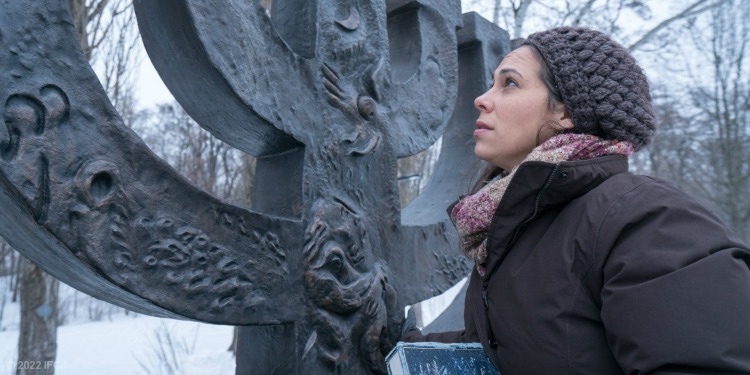Babi Yar 80 Years Later
Stand for Israel | September 30, 2021

On September 29-30, 1941, one of the more horrific moments of the darkest chapter in Jewish history occurred at a ravine in Ukraine called Babi Yar. There, more than 30,000 Jews were murdered – simply because of their faith. The Times of Israel reports on how the United States and Israel are commemorating the Babi Yar Massacre:
American and Israeli officials on Wednesday honored the victims of the Babi Yar massacre (also sometimes spelled Babyn Yar), on the 80th anniversary of one of the largest mass murders of Jews in the Holocaust.
US State Department spokesman Ned Price tweeted: “As we mark the 80th anniversary of the massacre at Babyn Yar in Ukraine, we must redouble our efforts to counter the kind of hatred that led to the Holocaust. We honor all those lost at Babyn Yar and recommit to ensuring its full history is told. #NeverAgain #ProtectTheFacts.”
Israeli Ambassador to Ukraine, Michael Brodsky, tweeted a photo of himself at the memorial site near Kyiv, writing: “It is our responsibility to remember and to preserve the memory for future generations who did not get to meet the Holocaust survivors and hear their story…”
Those who stand for Israel and the Jewish people will never forget. Earlier this year, as we marked Yom HaShoah (Holocaust Remembrance Day), Yael Eckstein wrote that part of remembering is to tell these stories, stories such as Babi Yar:
We do this best by telling the stories of those who lived through this horrific era. I grew up hearing those stories. When I was a child and my grandfather was at our house, he would tell us how he jumped from a moving train that was on the way to the concentration camps and how God saved him through miracles. Then his car broke down as he and his family were escaping the Nazis, and the family was split up as they fled on foot. Various family members couldn’t find each other for months and feared the others were dead. Miraculously, my grandfather survived and escaped Nazi Germany. Many of his family members did not.
For most people, it’s difficult to make these stories feel real. And that is why several years ago I took my oldest daughter on a very special trip at the time of her bat mitzvah. I had been to Ukraine many times in order to deliver Fellowship aid to Holocaust survivors and orphans. But this trip was different. I took my precious Israeli daughter to Ukraine to help her discover her roots and show her what some Jewish people have gone through simply because of their faith—to help her appreciate living in Israel and recognize the huge cost our people have paid for being foreigners in foreign lands.
Our first stop was Babi Yar, on the outskirts of the Ukrainian capital, Kiev. Here, during one terrible week in September 1941, the Nazis murdered at least 33,000 Jews (though some historians estimate they killed far more) after capturing the city. The scale of the Babi Yar massacre is difficult to comprehend. So we focused on just one story, the story of a Jewish girl who stood exactly where we were standing and was shot to death before being buried with tens of thousands of her fellow Jews. We held a picture of her; we cried, and we prayed.
It was an overwhelming and emotional experience. While there was much sorrow in contemplating the senseless brutality and loss of life, it was also a reminder of how blessed we are to live in Israel. Ours is a deeply rich faith, and our people—and our nation, Israel—have contributed so much to the world. As we talked later about the experience, I said to my daughter, “It’s not easy being born a Jew, but it is also our greatest gift.”
